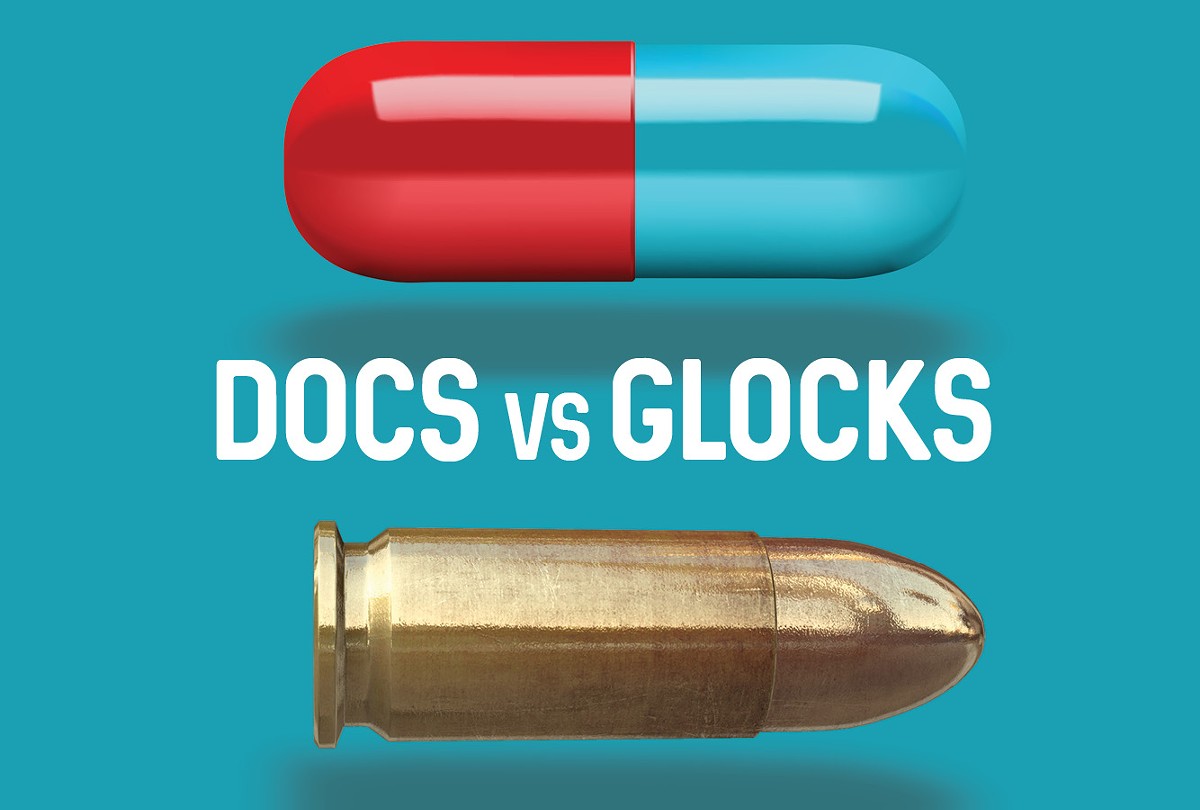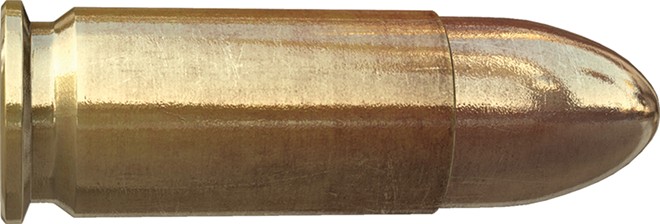Beck-Sagué's logic was probably similar to that of Dr. Chris Okonkwo, an Ocala doctor who in 2010 asked 26-year-old mother Amber Ullman whether she owned any guns before he examined her baby. As he later relayed the story to the Ocala Star-Banner, Ullman told Okonkwo it was none of his business. He told her to find another pediatrician.
After that story, the NRA took notice, ginning up outrage among gun-rights enthusiasts. In 2011, Marion Hammer, writing for the Institute for Legislative Action of the NRA, said the law would stop "anti-gun doctors from asking children and parents if they own guns and then telling them to get rid of their guns."
"Doctors need to treat illness, not guns," Hammer wrote. "Pediatricians and other physicians, in growing numbers, are prying into our personal lives, invading our privacy and straying from issues relating to disease and medicine by questioning children or their parents about gun ownership."
Eventually, the idea that doctors asking about guns was problematic found a champion in state Rep. Jason Brodeur, R-Sanford.
"What we don't want to do is have law-abiding firearm owners worried that the information is going to be recorded and then sent to their insurance company," Brodeur told the Fort Myers News-Press in 2011.
As Politifact pointed out, the Affordable Care Act, which became law in 2010, specifically prohibits the federal government from using the health care law to collect data on gun owners. It also prohibits insurance companies from adjusting rates because someone is a gun owner.
Brodeur pressed on regardless; in January 2011, he introduced HB 155, which threatened to jail doctors who discussed firearms with their patients. Doctors could also be fined up to $5 million.
Even in the GOP-controlled Legislature, that was a bridge too far; over months, the bill was tempered some, but the heart of it remained. The law that passed that April said that health care practitioners "shall respect a patient's right to privacy and should refrain from making a written inquiry or asking questions concerning the ownership of a firearm or ammunition by the patient or by a family member of the patient, or the presence of a firearm in a private home or other domicile of the patient or a family member of the patient." Legislators also reduced the penalties to lesser fines and the threat of losing a medical license, adding a vague clause saying physicians could make an exception if guns were "relevant to the patient's medical care or safety."
After Gov. Rick Scott signed it into law, doctors, medical organizations and the American Civil Liberties Union teamed up to challenge the mandate in federal court. Commonly referred to as "Docs v. Glocks," the lawsuit argued that the ban violated doctors' free speech rights. A federal judge in Miami agreed and blocked it the same year it was passed.
In the five years since, a three-judge panel of the 11th U.S. Circuit Court of Appeals reversed that federal judge and upheld the law. The physicians appealed to the entire appellate court; in July, the judges heard arguments for both sides of the issue. Ed Mullens, an attorney for the plaintiffs, says he expects the decision to be handed down sometime this year. From there, this case is likely destined for the U.S. Supreme Court after the loser appeals.
Brodeur tells Orlando Weekly he sponsored the law after doctors in the state program were refusing to see kids because their parents owned a firearm. He made the analogy that it would be just as unfair as if a woman walked in with food stamps to a grocery store and was asked by her cashier whether she exercised her right to vote as a condition of sale.
Brodeur adds that the media have gotten the law twisted: Doctors and paramedics can still make a "good-faith inquiry" about a patient's guns if they believe patients are an imminent danger to themselves or others. When OW asked how a doctor could determine that for certain, the state representative says doctors are professionals who could base it off their medical opinion.
"It's a civil right to be able to own a firearm," he says. "Physicians can still have the conversation about guns and the proper way to store them, but they should pose it as a question, not a condition of treatment. They should say, 'If you have a gun, you can do this,' not ask 'Do you have a gun?' I've heard from a number of parents who thanked me for this bill, saying it was a violation of privacy."
Howard Simon, executive director of the Florida ACLU, says the case is not about the Second Amendment, but rather the First.
"I thought this lawsuit was silly in a tragic way," he says. "It's absurd. We should be arguing about what regulation of guns is consistent with the Second Amendment. With this law, it's not even permissible to talk about gun safety. This law is a restriction on speech for one group of people on one subject that's disfavored by the Legislature. That's unconstitutional."
The state's defense, which is prepared by lawyers from Attorney General Pam Bondi's office, says the law barring doctors from asking about patients' guns "passes muster under any level of First Amendment review."
"By shielding gun-owning patients and families from discrimination, unnecessary harassment, and bad-faith, irrelevant inquiries and record-keeping, the act narrowly advances the state's compelling interests in protecting the fundamental right to keep and bear arms from private encumbrances, safeguarding patient privacy, eliminating barriers to health care, and preventing discrimination and harassment in the provision of health care services," a state brief in the case says. "The act represents the most modest of all professional regulations – a requirement that doctors stick to practicing medicine – and it accomplishes its compelling goals without interfering with doctors' professional judgment or otherwise burdening more speech than necessary."
Marion Hammer, the first female president of the NRA (who now lobbies for gun rights in Florida), agrees with the state. She asserts that gun ownership is a private matter unrelated to health concerns.
"It's like going to a mechanic to get your car fixed, and he tries to sell you a dress because he didn't like your pants," Hammer says. "It's completely irrelevant, and none of their business."
The American Medical Association would beg to differ. Two days after 49 people were shot dead at Pulse, the AMA declared gun violence a "public health crisis" and said it would actively lobby Congress to overturn legislation preventing research.
"Even as America faces a crisis unrivaled in any other developed country, the Congress prohibits the CDC from conducting the very research that would help us understand the problems associated with gun violence and determine how to reduce the high rate of firearm-related deaths and injuries," said Steven Stack, president of the AMA, in a statement.
Hammer is only one voice in the chorus of gun lobbyists denouncing what they view as invasive inquiries by doctors. She and the NRA view the law as a protective measure, aimed at preventing the collection of data on gun ownership that will only lead to discriminatory practices by insurance companies. For her, the entire issue is nothing more than propaganda aimed at banning guns entirely.
Dr. Bernd Wollschlaeger, the lead plaintiff in the case against the state, is a family doctor. He's also a gun owner.
Wollschlaeger says he's continued to ask his patients questions about guns in their homes with mostly positive response, despite what he calls "the NRA's attempt to muzzle physicians."
"This law benefits nobody," he says. "I'm not an anti-gun vigilante. The NRA and the gun lobby only want to sell guns. They're not taking part in any rational debate on the adverse effects of gun violence. The Second Amendment is not only a right. It's also a responsibility."




















